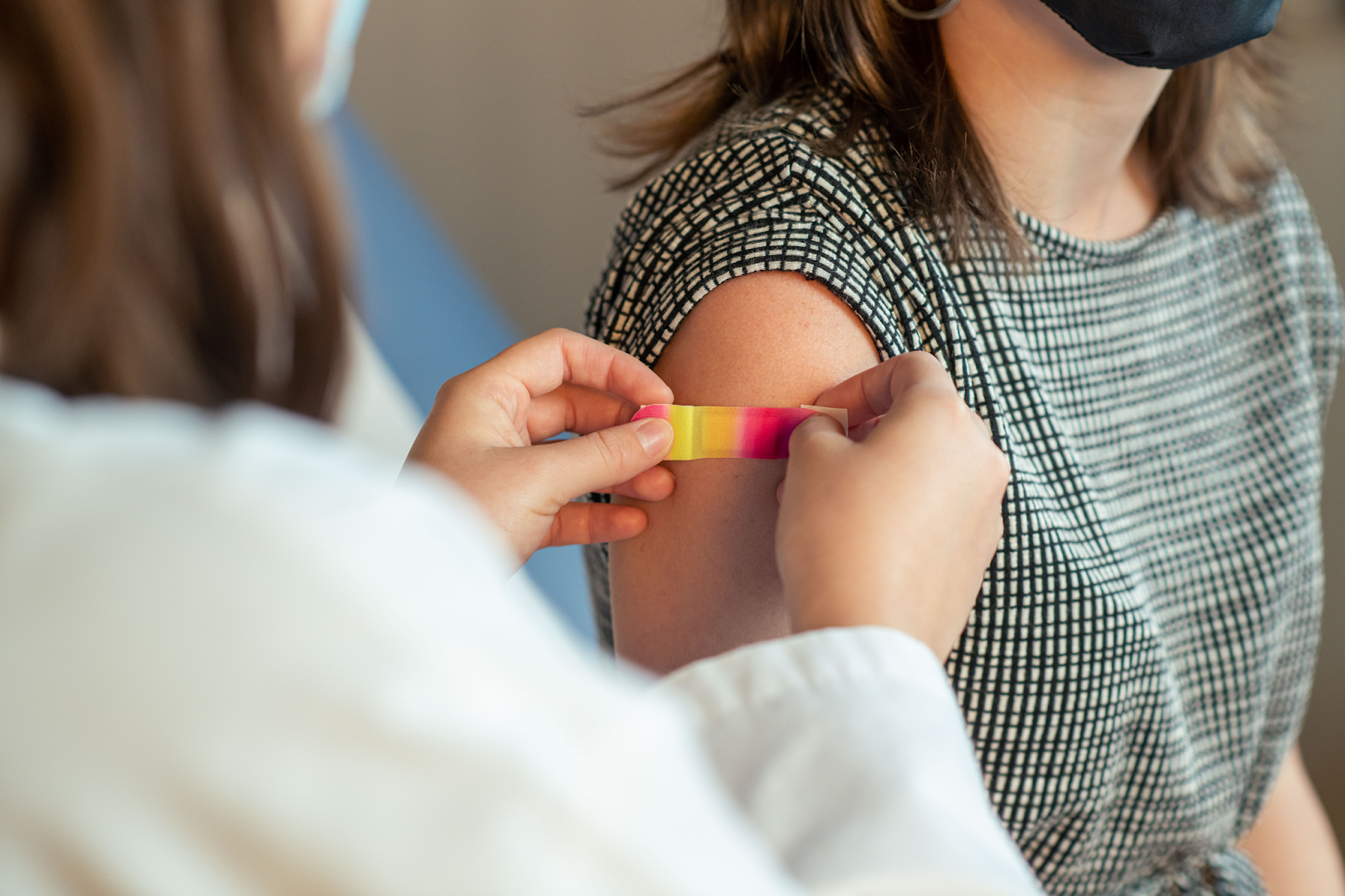COVID-19 vaccine
Last updated October 17, 2025
Available languages: Español
2025-2026 COVID-19 vaccines
On Sept. 3, 2025, CDPHE Executive Director Jill Hunsaker Ryan issued Public Health Order 25-01: Access to COVID-19 Vaccines, and CDPHE’s Chief Medical Officer, Dr. Ned Calonge, issued a standing order that will take effect on Friday, Sept. 5. The standing order allows other appropriately trained health care workers, such as nurses and pharmacists, to administer vaccines according to a protocol. This allows Coloradans to receive the vaccine at participating providers and pharmacies without having to first obtain an individual prescription. Costs may still apply depending on the person’s insurance coverage.
The updated COVID-19 vaccines protect against the latest variants of the COVID-19 virus. Most people only need one dose of the updated vaccine. It’s safe to get your COVID-19 vaccine and flu vaccine at the same appointment.

Find a COVID-19 vaccine Frequently asked questions about the COVID-19 vaccine
Getting a COVID-19 vaccine is the safest, easiest way to lower your chances of getting very sick, having Long COVID, needing to be in the hospital, and dying. Getting a COVID-19 vaccine is really important for people 65 years and older; people with medical conditions, including weaker immune systems; and people who live in long-term care facilities.
Types of COVID-19 vaccines
There are two types of COVID-19 vaccines approved for use in the United States; they are made by Pfizer, Moderna, and Novavax.
Pfizer and Moderna make mRNA vaccines, which use temporary genetic instructions to work with your body so it learns how to fight the COVID-19 virus. These genetic instructions are harmless and go away after your immune system has learned what the COVID-19 virus looks like.
Novavax makes a protein-based COVID-19 vaccine that uses small, harmless pieces of the COVID-19 virus to teach your body how to fight the whole germ. This is the same way that many other vaccines work.
Find a COVID-19 vaccine
You can get a COVID-19 vaccine at a local doctor’s office, local public health agency, or pharmacy. If you have health insurance, including Medicare, Medicaid, and CHP+, it should cover the cost of the vaccine as long as your provider takes your insurance. Ask your regular health care provider if they have COVID-19 vaccines.
Low- and no-cost COVID-19 vaccines for uninsured and underinsured Coloradans
If you don’t have insurance, or your insurance doesn’t cover COVID-19 vaccines, you can still get vaccinated at low or no cost.
Use the Vaccines for Children map to find a provider with low- and no-cost vaccines for eligible children aged 18 years and younger. The Vaccines for Children program provides vaccines for children who are uninsured, underinsured, on Medicaid or Medicaid-eligible, and/or Alaskan Native/American Indian.
Some Vaccines for Children providers may also have low- and no-cost vaccines for uninsured and underinsured adults aged 19 years and older. Providers with low- and no-cost COVID-19 vaccines for uninsured and underinsured adults aged 19 years and older can be found on CDPHE’s map below.
Search for a vaccine provider by county
Click on the name of your county to jump to providers with COVID-19 vaccines for uninsured and underinsured adults in that county.
A Colorado law called Individual Access to Publicly Funded Vaccines helps make sure people can get the COVID-19 vaccine even if they don’t have health insurance or can’t afford to pay a fee.
Providers with low- and no-cost vaccines for uninsured and underinsured children and adults may ask you for:
- Health insurance.
- A government-issued identification card.
- A social security card or number.
- An out-of-pocket fee for the administration of the vaccine.
You do not have to provide any of these to receive a publicly funded vaccine, even if the clinic asks for them. It is illegal for the clinic to deny you a publicly funded vaccine for not showing documents or being unable to pay a fee. Learn more about your right to get a publicly funded vaccine at no cost.
